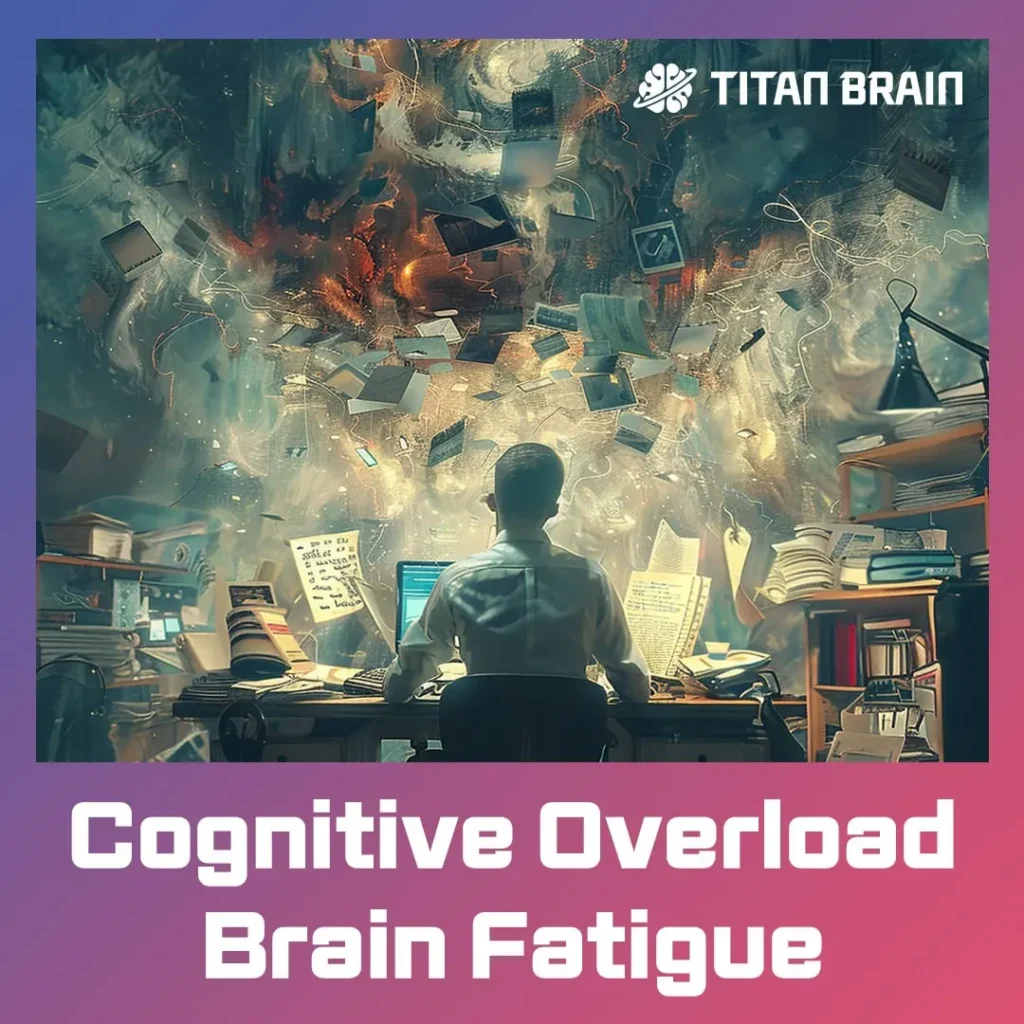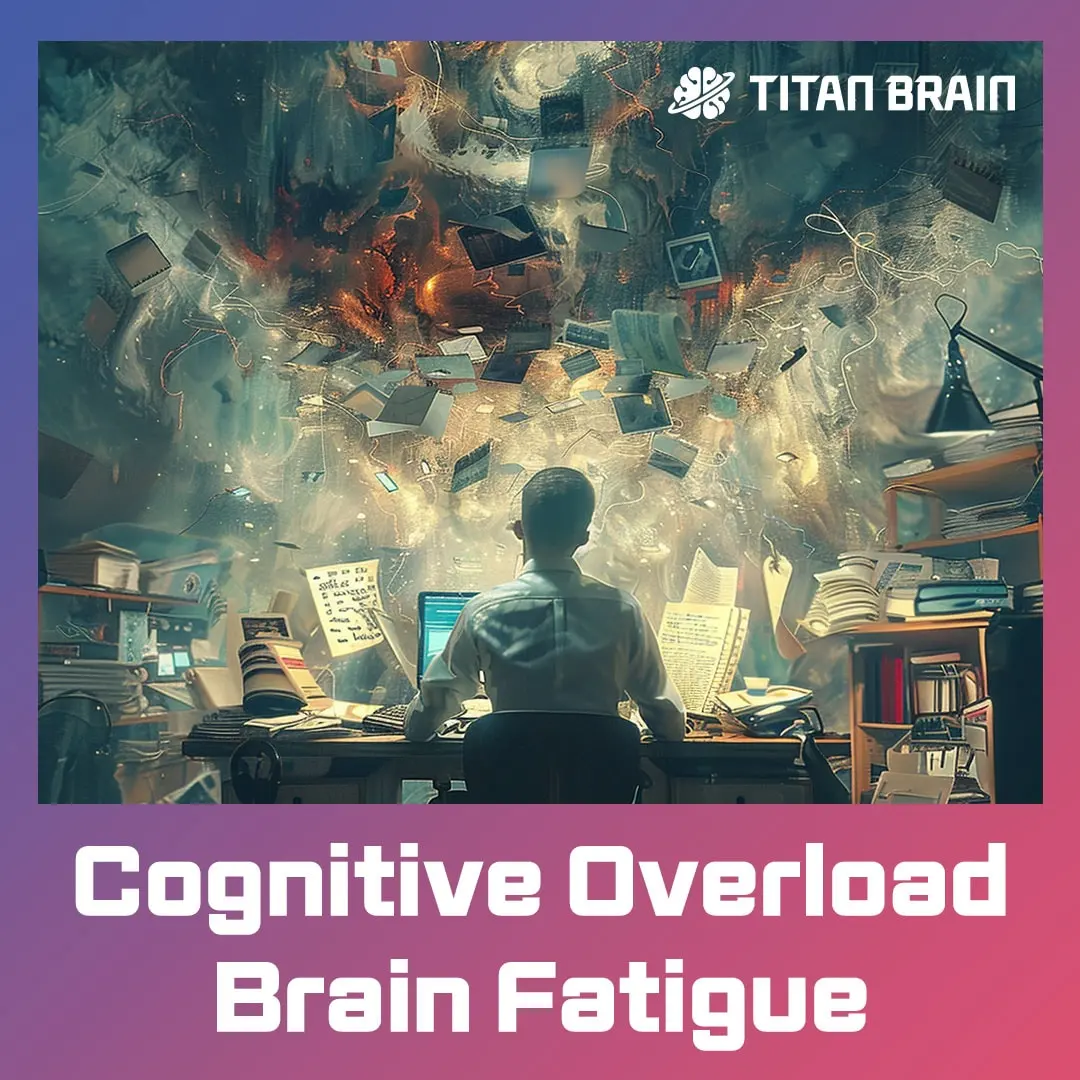We will examine what cognitive overload is and whether there are solutions to it. Cognitive overload refers to a state in which the brain finds it difficult to process information due to the excessive amount of information during the information processing process. Even in situations we are not aware of, the brain continuously processes information, and modern society has a lot of information to be aware of even when we are still. We will look at the reasons for cognitive overload and measures against it for good decision-making and productivity.
1. Meaning of Cognitive Overload
Cognitive Overload refers to a situation where the energy of the human brain is reduced and concentration decreases during the process of handling numerous information and decisions.
When cognitive overload occurs, productivity can be reduced and drive can be lost, so people living in an information-rich modern society should be careful.
Neurons, which are active in our brain, are cells that play an important role in the nervous system of the human body, and like other cells, they need oxygen and glucose to survive. If neurons work hard, we can only feel fatigue.

2. Reasons for Cognitive Overload
Let’s look at the reasons for cognitive overload. These reasons include excessive information, a society that demands a lot of work, and a brain system with capacity.
1) Information Flood Age
As modern society develops, the amount of information increases and the influence of exposed media grows. As information that stimulates the human five senses increases, mental fatigue due to mental overload can occur.
The situation like now, where there is too much information, is a situation where we humans need to care much more than our brain is designed to be moved from a biological point of view.
Intellectuals like philosopher Immanuel Kant and poet William Wordsworth even talked about accumulating fatigue due to information overload in their times.
Tip) To reduce cognitive overload, it is necessary to minimize the amount of information exposed to individuals, and for that, it is good to stay away from video media, mobile phones, and other electronic devices.
2) Modern society that demands a lot of work
In the primitive era, humans had nothing to do except have children and survive. However, as agriculture was practiced and production increased, cities developed and writing was created.
As writable characters were created, books increased, and various information was created. In modern society, the development of electronic devices has created opportunities to access more vast knowledge and information.
However, as much information has increased, humans have a lot of information to grasp and discard, and multitasking has become inevitable due to various work demands and devices.
But the brain uses a lot of energy to switch attention. The modern society environment itself, which requires multitasking, can create cognitive overload.
Tip) To reduce cognitive overload, it is good to focus only on that task when doing one thing. It is more efficient to sleep only in bed and read only at a desk.
3) Attention System with Capacity
Our human brain’s attention system, that is, concentration, is said by neuroscientists to have capacity. Therefore, if the energy related to attention is all consumed, concentration can decrease.
Also, depending on the characteristics of the attention system, it can create cognitive blind spots. Our brain only sees what it wants to see and does not see what it does not want to see.
The human brain receives and filters information through various filters, and filters work according to changes and importance. The brain’s change detector constantly detects changes and can change attention depending on the importance.
Even if the brain’s change detector does not directly provide you with information, it searches for numerous people and environments passing by, and if there is a change, it provides you with information. It also provides information that is considered important to the individual first, and ignores and passes by other things.
Tip) To use brain energy efficiently, it is good to reduce situations where the brain is used as much as possible. Try reducing exposure to stimulating videos or games!
4) Attention System that Requires Attention to Energy Use
Our brain is most efficient and waste-free when it processes one thing at a time. Therefore, doing many things alternately consumes concentration quickly.
In addition, there are things that automatically attract human attention, usually related to survival (life and death, sex, food, etc.). Even if you are still, situations related to survival can steal energy.
Tip) Negative thoughts that you are unaware of related to survival, causing anxiety or anger, doing various things alternately, etc., can waste energy.

3. Ways to Reduce Cognitive Overload
Let’s explore ways to reduce cognitive overload. These include reducing decision-making, adopting a satisficing strategy, and setting priorities.
1) Reducing Decision-Making
Humans typically make dozens of decisions daily. While individual differences exist, many of these decisions are insignificant.
Decisions on which socks to wear first, whether to take the bus or subway, or what to eat today can consume a lot of time in daily life.
However, each of these decisions adds to the brain’s burden, and over time, the brain becomes fatigued, making it difficult to engage in productive activities.
For this reason, many famous CEOs buy the same clothes and socks in bulk so they don’t spend time choosing what to wear each day.
In modern society, activities that involve making many meaningless decisions include social media, media, and mobile games, which can make it difficult to have a productive time, especially if engaged in from the morning.
Tip) Influential people and the wealthy, as mentioned in various books, do not spend time on trivial activities. Chairpersons of large corporations delegate daily tasks such as dressing, eating, and commuting to other employees. Instead, they invest time and energy in making important decisions for the company!
2) Satisficing Strategy
The satisficing strategy is one way to reduce decision-making, a term used by Nobel Prize-winning economist and cognitive scientist Herbert Simon.
We humans do not try to make the perfect and best choice for every trivial thing like choosing a pen in daily life because there is simply not enough time to live that way. Therefore, people usually make a choice that is good enough.
The satisficing strategy is one of the ways humans can remain productive and is particularly useful when you do not want to waste time on unimportant things.
Through the satisficing strategy, you can save energy on unimportant things and invest time and energy in making the best choices for important tasks.
Tip) Warren Buffett is known as a master of satisficing. Despite being one of the wealthiest people in the world, he has lived in a modest home for many years and is known to buy a pack of milk and Oreo cookies for breakfast when visiting New York. However, he does not use the satisficing strategy in his investment decisions, instead investing time to make the best decisions.
3) Setting Priorities through Active Sorting
Neuroscience says that the nervous system responsible for judgment in the brain does not prioritize decisions; rather, the number of decisions can push the brain’s capabilities to their limits.
Therefore, it is necessary to set priorities and focus time and energy on important tasks. Successful people are known to be good at prioritizing categorization, called Active Sorting.
For example, many companies classify tasks into four categories: ① tasks that need to be dealt with immediately, ② important but can be dealt with later, ③ not important but need to be kept for later, ④ to be discarded.
To reduce cognitive overload, individuals can also actively sort their tasks first thing in the morning.
Tip) Active sorting can protect you from becoming mentally scattered. Set priorities and act accordingly!

3. Author’s Thoughts
I am currently in my thirties, but in my twenties, I invested a lot of time in unproductive activities like gaming. However, I realized that my involvement in gaming was influenced not just by the fun of it but also by my unconscious beliefs.
It was about focusing on activities I could immerse myself in now, rather than striving for or seeking activities or forms I desired, simply avoiding them.
If you also find yourself falling into unwanted behaviors even though you have desires you are unaware of, you should not only act to avoid cognitive overload but also examine what beliefs you live with.
Organize or write down what values you prioritize, what kind of person you want to be in the future, and how you want to live your life! And act for the future you!

4. Conclusion and Q&A
We have explored what cognitive overload means and how it can be prevented. The key was to preserve our brain’s energy and use it only for important tasks. Let’s look at some frequently asked questions and understand the main points.
1) What is the meaning of cognitive overload?
Cognitive overload is a state where our brain becomes tired and loses concentration due to the exhaustion of energy in the process of handling many information and decisions.
2) What are the reasons for cognitive overload?
As modern society progresses, we are exposed to a lot of information, tasked with processing it, and unknowingly take on various tasks, wasting and depleting our brain’s energy.
3) How can we minimize cognitive overload?
It is important to set priorities and invest time in important tasks. Additionally, reducing activities like watching media or playing games that drain sensory energy and doing one thing at a time can be helpful.
If you are curious about memory and attention or want to learn how to set priorities and organize notes, please refer to the link below for the article!
► Information Source and Reference Material
[Book] The Organized Mind: Cognitive Overload Part – Daniel J. Levitin / Wiseberry Publishing
[Book] Game Changers: Life’s Ultimate Energy and Focus Formula – Dave Asprey / Business Books Publishing
– Be the Titan Brain


